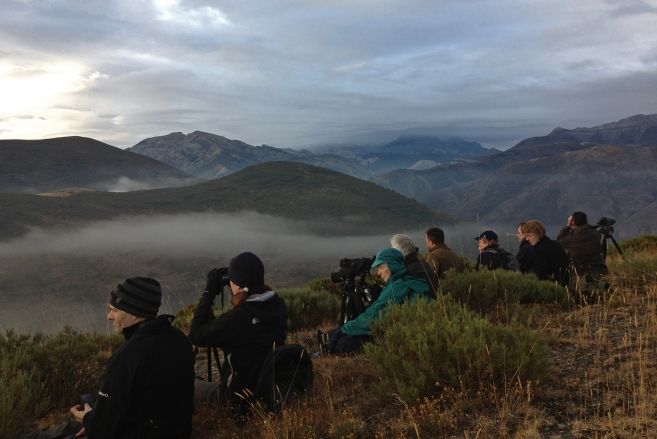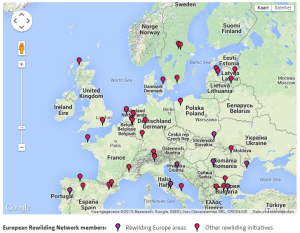On June 5 another event was held to share experience between members of the European Rewilding Network. This time the subject was about coexistence between people and large carnivores. This sixth web-based seminar included a presentation of two best-practice examples from areas with existing conflicts between local people and wildlife in Bulgaria and Spain. Webinar discussions focused on innovative methods as to how to mitigate human-wildlife conflicts, and turn such problems into new opportunities.

The webinar covered human coexistence with large carnivores and specifically addressed the wolf situation. Several members from various rewilding sites throughout Europe attended to hear about the experiences of two speakers from projects that have smoothen the path for a better future for people and carnivores in particular. Participating members actively shared a lot of information on human-wildlife conflicts with each other to broaden their own knowledge and to pass valuable experiences.
Emilian Stoynov from the Fund for Wild Flora and Fauna in Bulgaria provided details on their successful Livestock Prevention and Compensation Programme. One of the main aims here is to contest the use of poison on predators, as this practice is also very harmful for a range of endangered raptor species and vultures. They show local people how to cope better with predator presence, and advise livestock owners on how to improve protective methods to keep their cattle and sheep safer. In addition, Emilian pointed out two very valuable methods to help affected local livestock owners who often only breed a few animals. Besides financial compensation schemes, guarding dogs are donated by the programme to help safeguard livestock from serving as food for wolves. The programme also restocks lost animals so that the business can continue directly.
Luis Frechilla from WildWatching Spain presented the efforts on how this nature tourism agency raises awareness about wolves by showing economic benefits of wolf presence to local communities. In their Wolf & Bio project, wildlife watching tourism is the key to increase the value of wolves alive and reduces social unrest. This already resulted in a shift of the local’s opinion towards a future that respects wolves for their important role in nature as well as their attractiveness for nature tourists. “People in the area are now opening their minds. All of them see the positive economic and social impact of the wildlife watching tourism for their future – with all the positive spin-offs”, says Luis.
Recently, two new exciting rewilding initiatives joined the European Rewilding Network. The programme ‘Paspardo nel cuore’ (Paspardo in my heart) located in the Italian Alps, works to become a model showing positive interactions between human activities and nature conservation by providing new economic opportunities for society. Involving local communities is an important aspect of the programme. In Germany, an ambitious Eurasian lynx reintroduction project started in the Palatinate Forest recently. In the coming years lynxes will be released here, with the aim to establish a viable subpopulation of this iconic cat species. The project has high expectations that lynxes further disperse into the Northern Vosges in France. By doing so, genetic exchange with Eurasian lynxes in the Jura Mountains and the Alps might be on its way in the near future.

The European Rewilding Network now counts 38 members located in 18 different countries all over Europe. Besides Rewilding Europe’s main rewilding areas, the ERN now spreads over an impressive 1 million hectares where interesting rewilding activities are taking place.
Rewilding Europe warmly welcomes new members to the European Rewilding Network (ERN). Events like online seminars are a great tool to share and discuss new ideas and modern approaches, and to inspire others in their own field of work. Sharing knowledge built on various rewilding experiences and methods is a useful tool for all of us working to make Europe a wilder place.
Please feel welcome to have a look at how your inspiring rewilding initiative could become a part of Rewilding Europe Network at www.rewildingeurope.com/rewilding-network/.
